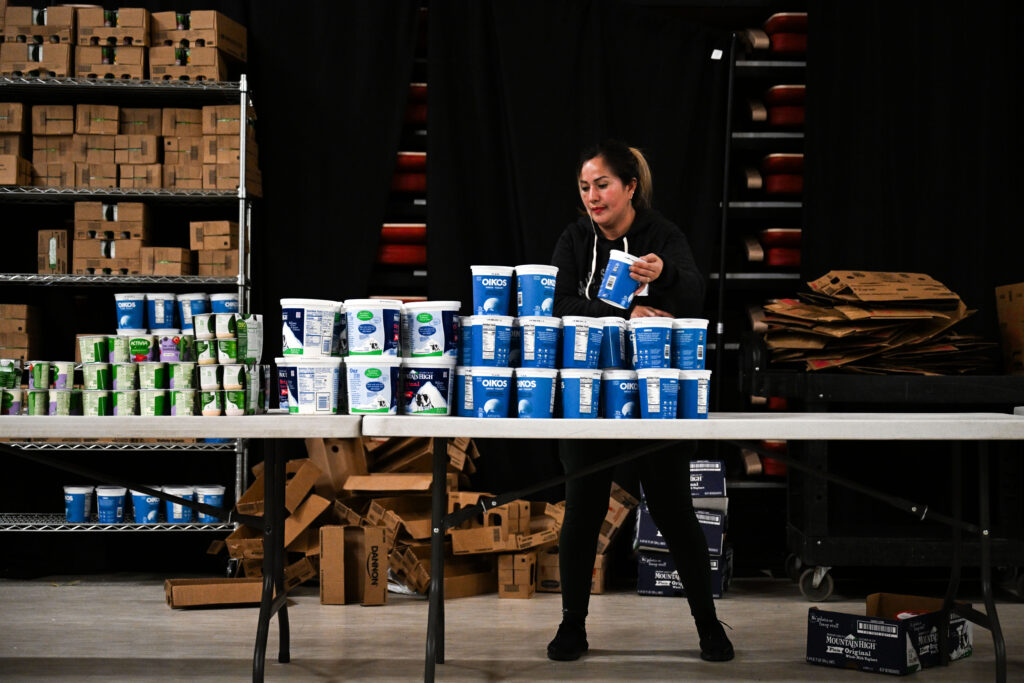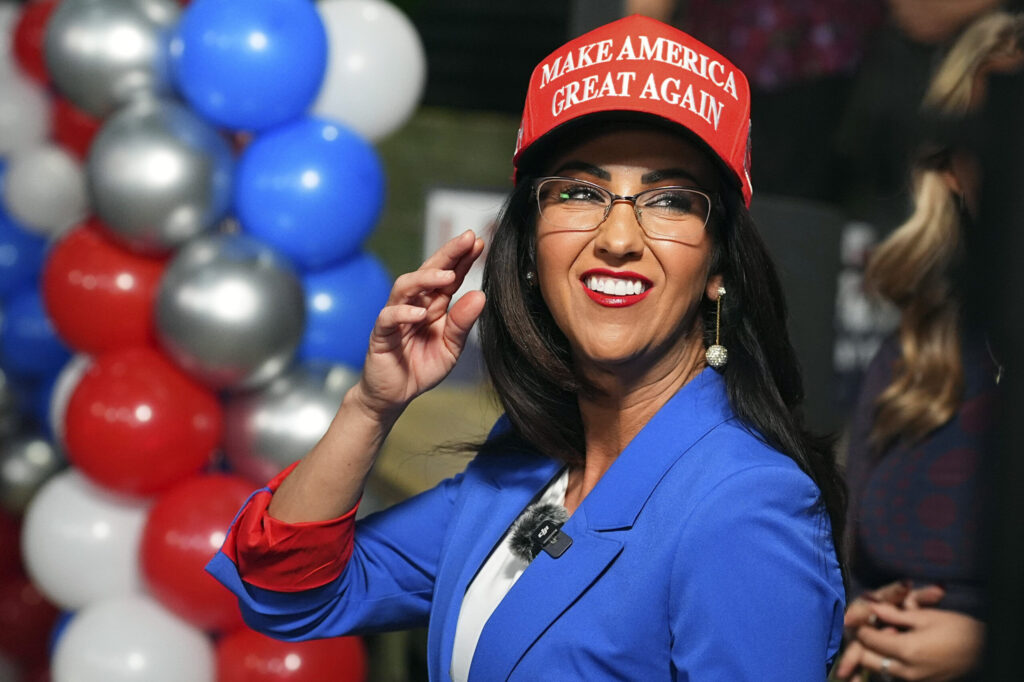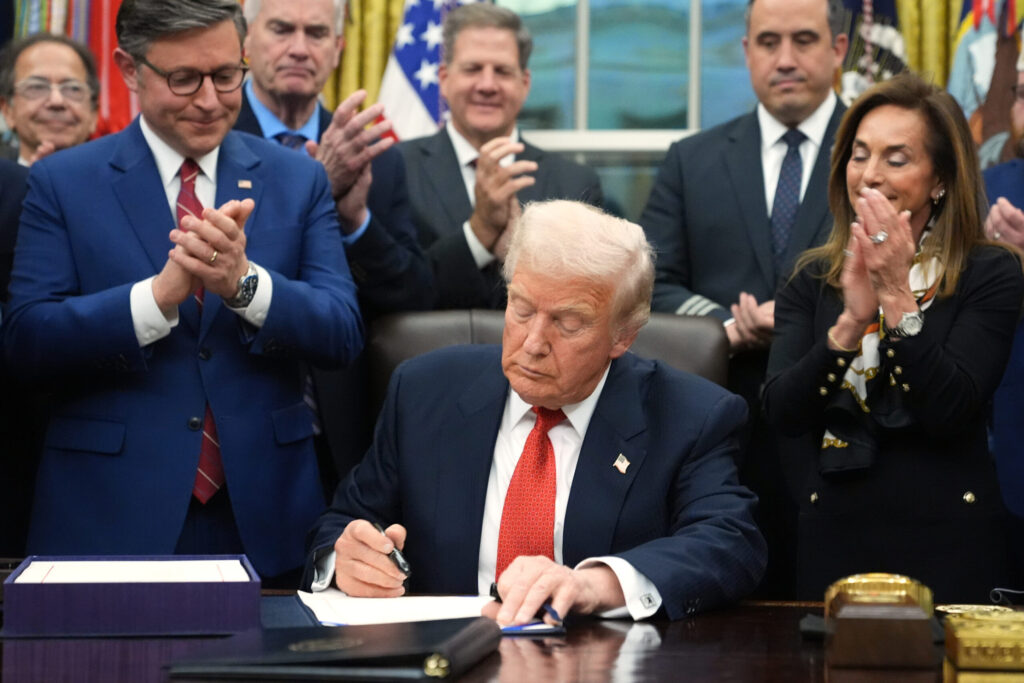After midterm autopsy, Colorado and national Democrats scramble to realign message
When Sen. Cory Gardner unseated Democratic incumbent Mark Udall in the 2014 midterm elections, he was the first challenger to boot a sitting Colorado U.S. senator out of office since 1978. The highly competitive race topped priority lists on both sides of the aisle. But on election night, only the Republican camp celebrated. Not only did Gardner pull off the upset. A majority of races south of the Gardner/Udall contest on the ballot also went into the conservative column.
After dominating Colorado politics for most of the 2000s, Democrats had to ask themselves: How did we get here?
In Washington, D.C., at the Democratic National Committee headquarters, the alarm bells were ringing even more shrilly. Chairwoman Debbie Wasserman-Schultz, the national campaign organizer-in-chief, immediately called to arms, assembling ten men and women to form the Democratic Victory Task Force. Among the members — Colorado Democratic Chair Rick Palacio.
By mid-February the emergency crew, tasked to clean up the shambles of the midterm wreck, came up with its nine-page autopsy.
The key advice the Democratic luminaries amassed in their report boils down to a handful of strategies: A value-based narrative centered around economic prosperity for all. A more grassroots-oriented, inclusive party structure. Protecting voting rights. A not further defined “three-election strategy” to set Democrats up for the next redistricting in 2020. And: the urgency to groom the next generation of party leaders.
So far, so good, the Task Force members thought, as they will continue to meet for another three months working toward the gunned-for May release of a comprehensive strategic plan on how Democrats on the state and national level can succeed throughout the 2022 elections.
Republicans expect their opponents to come out swinging as the next campaign season rolls around. Still, a sneering RNC spokesman Michael Short jabbed Democrats in a statement distributed to reporters’ inboxes: ‘The first step toward fixing a problem is admitting that you have one, but it’s clear the DNC isn’t willing to come to terms with why their party lost in historic fashion last November. The reality is their divisive message doesn’t resonate, and their liberal policies don’t work.”
Colorado GOP chairman Ryan Call also shared some advice for his struggling colleagues on the other side of the great partisan divide. Based on an “honest examination” of their 2012 losses, Call said in an emailed statement to The Statesman, the Colorado GOP “increased fundraising to build a year-round field program, invested in data and new technologies to better reach voters, opened more county-based field offices than ever before and worked to contact voters in communities that have historically voted for Democrats with full-time engagement staff.” Call added, “we had a positive, optimistic message and well-trained candidates that were equipped with the support they needed, who ran on the issues that were important to Coloradans.”
Sardonically, Call quipped: “The results in 2014 speak for themselves.”
How would Palacio react to that zinger? The Colorado Statesman reached out to the Colorado Democratic chairman, but Palacio was unable to make time for an interview before this story went to print.
So instead, we turned to one of Colorado’s most esteemed and successful Democratic strategists — Craig Hughes, a partner at the national consulting firm Hilltop Public Solutions. Hughes, a former high-level White House operative for the Clinton administration, was the senior Colorado advisor for both of President Obama’s Oval Office bids. He also managed the successful campaign of the remaining Democratic Colorado U.S. senator, Michael Bennet, back in 2010.
Today, Hughes sits in his townhouse-style offices in downtown Denver, whose operations he oversees, and talks about what went wrong (and the few things that went right) for Colorado Democrats in 2014. His firm had four main clients during the height of the campaign madness last fall – the independent expenditures for Gov. Hickenlooper and the state House Democrats, Joe Neguse’s bid for secretary of state as well as NextGen, the Super PAC of billionaire green-energy magnate Tom Steyer.
So, Mr. Hughes, what did you learn from 2014?
“You have to give credit to the governor that he was able to link the economic success to his policies. That was effective. [But] we need to make sure that there is an economic narrative about wages, about jobs. We also have to acknowledge what worked. Democrats put a lot of effort into turning out the vote and increasing turnout. Contra public perception, it was quite successful.”
While Hughes pointed out higher turnout among young and Hispanic voters as a positive, an internal post-mortem analysis his firm floated to small donors across the state paints a less flowery picture. In the memo, it says, “We succeeded in turnout but ultimately failed in persuasion.” The analysis attributes the struggles to a “loss in support among independent men and downscale voters, as well as a partisan hardening of the electorate.” The Hilltop strategists conclude: “Votes from metro and suburban areas continue to grow at the expense of rural Colorado, however … Democrats should be extremely concerned about their drop in performance in rural and blue-collar areas of Colorado.”
Looking at both Hickenlooper’s victorious economy-based campaign strategy and Udall’s loss, did the senator alienate more people with his stark focus on women’s rights?
“The choice issue for a large part of the campaign kept Mark Udall ahead or kept him close. But ultimately it wasn’t enough to put him over the top in this wave election. I’m not sure there was one issue that could have, given how the country went. Udall had a strong voting record on [women’s rights], so they went after it aggressively. Part of the problem is not that they went after it aggressively, but all the Super PACs and outside money — it just became too much. That bigger eco chamber was part of the problem.”
Once people step into the sober, wooden foyer of the Hilltop offices, their eyes promptly catch the two framed Denver Post 2010 front pages, boasting: “Buck n” Bennet” and “How Bennet Won It.”
So, Mr. Hughes, how did Bennet win it? And why didn’t Udall win it?
“In non-presidential years, Colorado leans Republican. To overcome that takes a tremendous amount of effort, great candidates, and a lot of synergy coming together. In 2010, we were able to overcome a 100,000+ Republican advantage, in terms of who voted, to barely win. That campaign was strong, but also Ken Buck made errors that we capitalized on. In 2014, to credit Cory Gardner and his team, they didn’t make those kinds of mistakes. (…) In a strange way, Colorado in the past has been a little less partisan than the rest of the country, and I’m not sure that’s true anymore. Michael Bennet and down-ballot candidates in 2010 were able to get some Republican crossover votes. In 2014 that was very difficult.”
Another framed memorabilia in the Hilltop foyer – the 300th issue of “Campaigns & Elections,” the industry’s biblical magazine. There, the editors tout Hughes as a “Colorado Influencer,” an exquisite list of five key movers & shakers: Gov. Hickenlooper, his former campaign manager Mike Melanson, multi-millionaire LGBT activist Tim Gill, campaign strategist Ted Trimpa – and Hughes.
As a member of that illustrious group, Hughes’ opinion counts, and it counts seriously. What, then, is his advice for the 2016 cycle?
“For Colorado, there are some different dynamics in place. We have a fast-growing state, we have growing Latino, millennials and youth populations. That, together with the right message, should help our nominee. At the same time we are going to be fully cognizant that we have got to appeal to middle-class, working-class voters, and we can’t allow Republicans to increase their share of the vote there. The message has been a little challenging. We really need to be talking about where the two parties are different and focus on the economy in terms of job creation and pocket-book issues.”
Colorado Politics Must-Reads:












